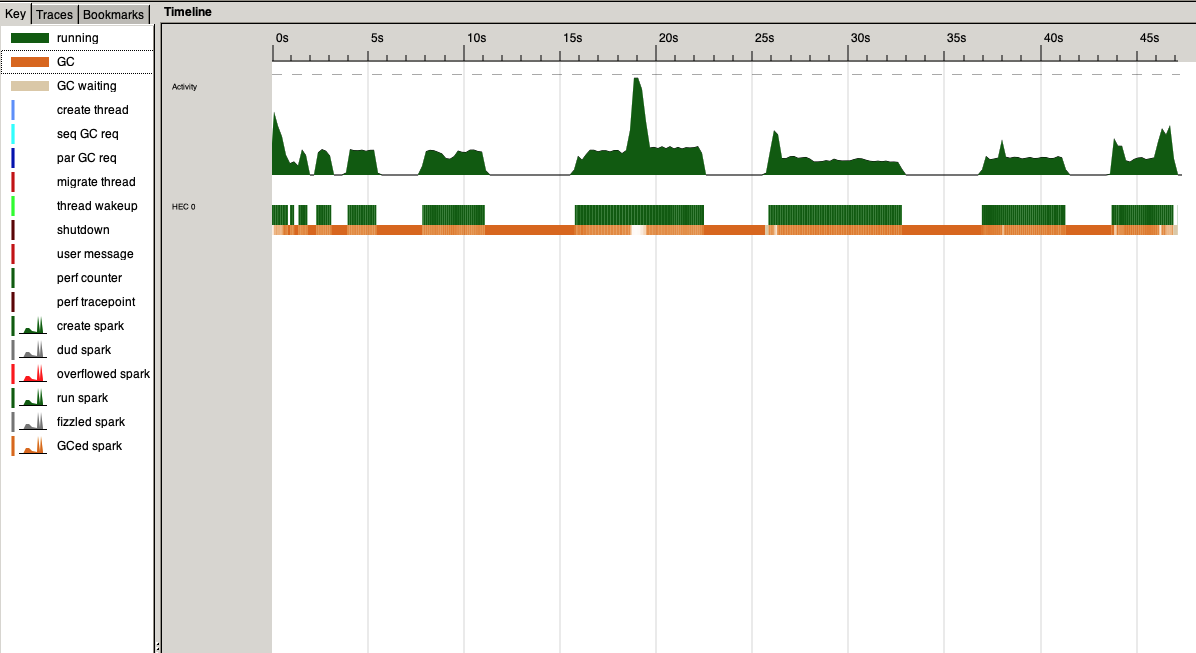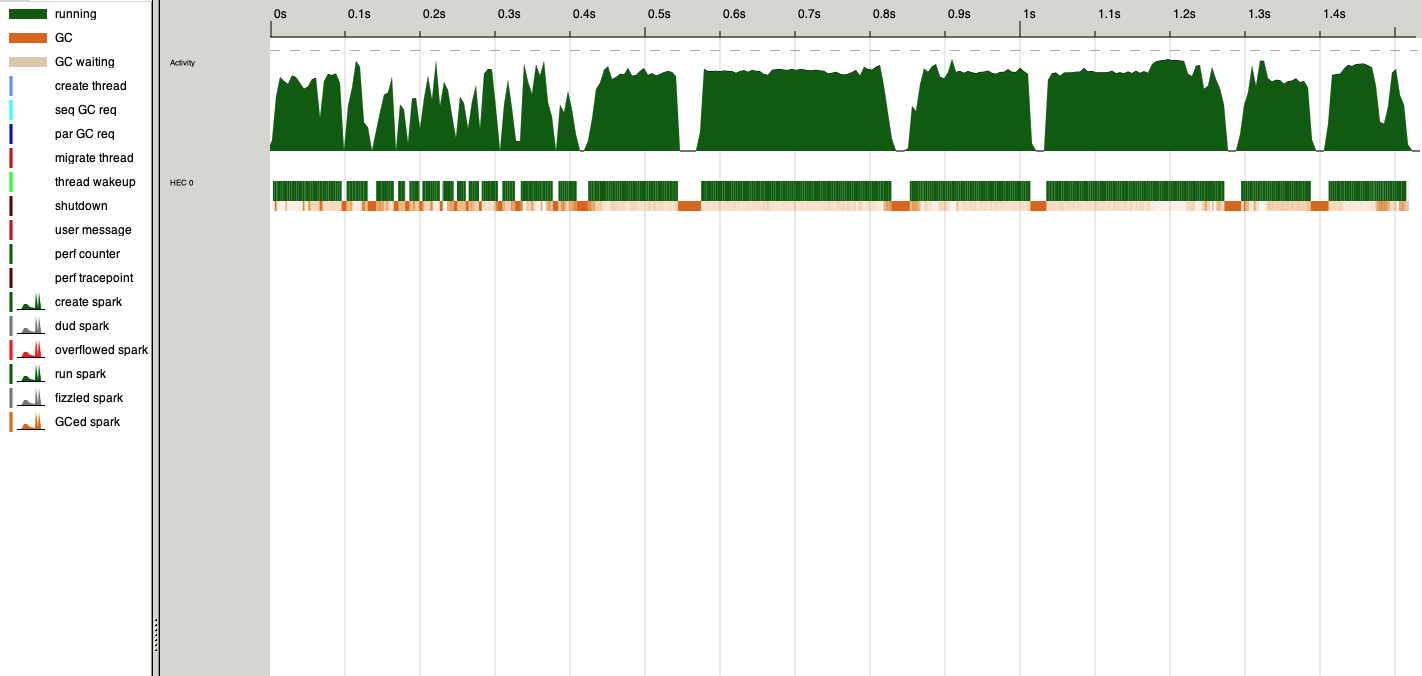This sounds very exciting!
I'm not too sure which error you are referring to, could you provide an example which triggers it? I'm curious to compare the behaviours, even if this case is rare or non-existent in the wild.
Does this have any effect on PGF size? I presume the resulting PGF produced with this modification is different, in the sense that it will have a different md5sum. Has any comparison of old/new PGFs been done with say gftest?


This prevents HUGE space leak and makes compiling a PGF a LOT faster
For example, an application grammar moved from taking over 50GB of ram and taking 5 minutes (most of which is spent on garbage colelction) to taking 1.2 seconds and using 42mb of memory
The price we pay is that the "variable #n is out of scope" error is now lazy and will happen when we try to evaluate the term instead of happening when the function returns and allowing the caller to chose how to handle the error. I don't think this should matter in practice, since it's very rare; at least Inari has never encountered it.